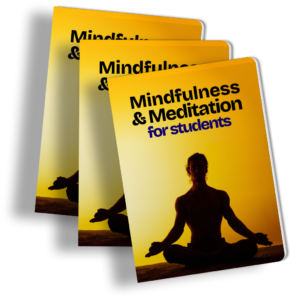In today’s fast-paced world, students are under immense pressure to excel in academics, extracurricular activities, and social life. This constant pressure can lead to stress, anxiety, and rumination on past mistakes or future worries. These negative emotions can significantly hinder a student’s ability to focus and perform well.
Mindfulness is a powerful tool that can help students cope with academic pressures and achieve their goals. Mindfulness is the practice of focusing your attention on the present moment, without judgment. By cultivating mindfulness, students can learn to detach themselves from negative thoughts and emotions, and instead, focus on the task at hand.
Here are some of the ways mindfulness can help students:
- Reduces stress and anxiety: Mindfulness helps students become aware of their thoughts and emotions without judgment. This allows them to let go of negative thoughts and worries, leading to a reduction in stress and anxiety.
- Improves focus and concentration: By training their attention to stay on the present moment, students can improve their focus and concentration. This can be especially helpful during exams or when working on complex tasks.
- Enhances emotional regulation: Mindfulness helps students develop healthy coping mechanisms for dealing with difficult emotions. This can lead to improved emotional regulation and overall well-being.
- Boosts working memory: Studies have shown that mindfulness can improve working memory, which is the ability to hold and manipulate information in your mind. This can be beneficial for students who need to remember complex information for exams or assignments.
- Increases self-awareness: Mindfulness helps students become more aware of their thoughts, emotions, and physical sensations. This self-awareness can help them make better choices and live a more fulfilling life.
Practicing mindfulness is a simple yet effective way for students to improve their academic performance, well-being, and overall quality of life. There are many different mindfulness exercises that students can incorporate into their daily routine. Some popular techniques include meditation, yoga, and deep breathing.
Even a few minutes of mindfulness practice each day can make a big difference. By taking the time to focus on the present moment, students can learn to manage stress, improve their focus, and achieve their goals.

